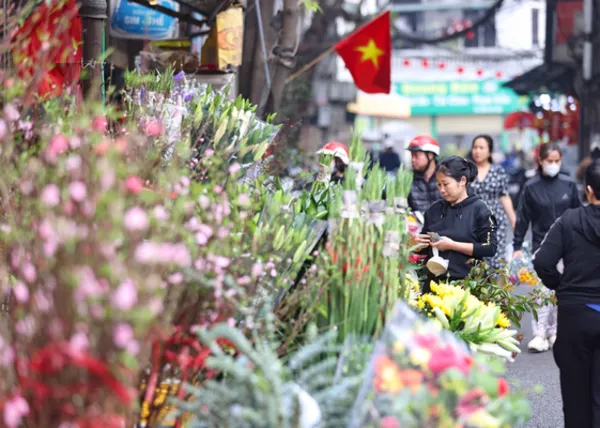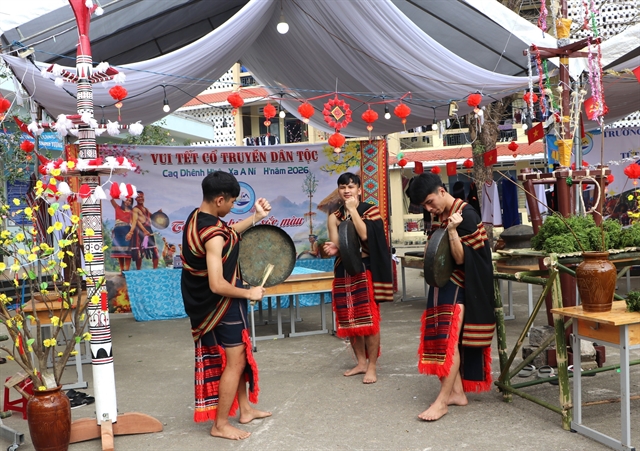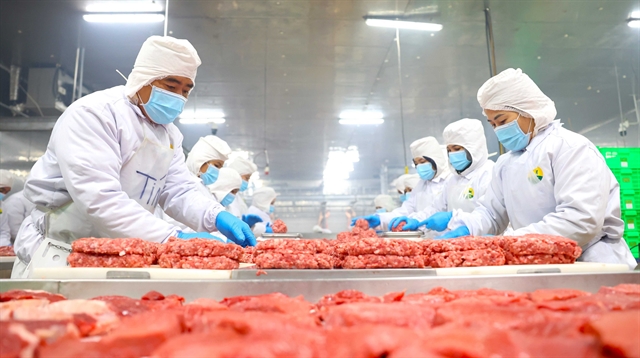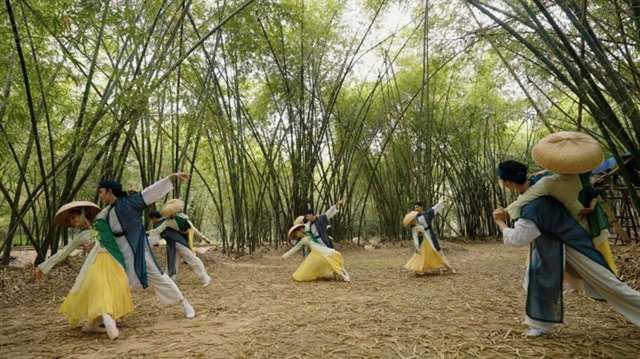 Politics & Law
Politics & Law

Minister of Foreign Affairs Bùi Thanh Sơn has affirmed Việt Nam’s strong commitments to multilateralism, international solidarity and joint efforts for peace and development in the world.

|
| Participants at the UN Security Council meeting on upholding international peace and security, upholding multilateralism and the UN-centred international system. — VNA/VNS Photo |
HÀ NỘI — Minister of Foreign Affairs Bùi Thanh Sơn has affirmed Việt Nam’s strong commitments to multilateralism, international solidarity and joint efforts for peace and development in the world.
Addressing a ministerial-level online open discussion of the UN Security Council (UNSC) on May 7 (US time), Sơn said that multilateral cooperation played a key role amid the current global challenges, including arms races, terrorism, trans-national crime, climate change and the COVID-19 pandemic.
He recalled the UNSC’s commitments in promoting multilateralism, abiding by the UN Charter and building international order based on international law as stated in the UNSC President’s Statement in January 2020 when Việt Nam held the rotating Presidency.
Sơn called on the international community to promote the culture of complying with the UN Charter and international law, opposing power politics and the use of force in international relations.
He underlined the need to continue strengthening collaboration between the UN and regional organisations, while highlighting the central role and efforts of the Association of Southeast Asian Nations (ASEAN) in dealing with regional and international issues.
The minister also encouraged multilateral institutions, including the UNSC, to work harder in reform towards increasing transparency, democracy, efficiency and the representation of member countries.
On the occasion, he recalled that Việt Nam’s Điện Biên Phủ Victory on May 7, 1954 played an important role in promoting the movement of struggling for peace, independence, national liberation and anti-imperialism, helping to facilitate democratisation in the international system with the UN being the centre and Việt Nam being a member.
At the session, President of the UN General Assembly Volkan Bozkir stressed the crucial role of multilateralism in the settlement of peace and security issues in the world.
He showed deep concern about the situation in hotspots such as Myanmar and Syria, while calling for the enhancement of international cooperation in coping with global challenges such as conflicts, hunger and poverty, and the COVID-19 pandemic.
Participants reaffirmed their support for multilateralism and the UN-centred international system, calling all parties to uphold the UN Charter and fundamental principles of international law. They also highlighted their commitments to promoting multilateral cooperation in the settlement of common matters.
Children protection
The same day, Ambassador Đặng Đình Quý, Permanent Representative of Việt Nam to the United Nations, also took part in the UN Security Council (UNSC)'s Arria-formula meeting on the impact of COVID-19 on violations against children in situations of armed conflict.
The meeting, jointly held by UNSC members – Estonia, Norway, France, Tunisia, Ireland, the UK, the US, Kenya, Niger, Saint Vincent and the Grenadines, and Việt Nam – along with Belgium, Sweden, Germany and Canada, drew representatives from 32 countries, a number of UN agencies and non-governmental organisations.
According to Virginia Gamba, Special Representative of the Secretary-General for Children and Armed Conflict, the COVID-19 pandemic has caused the delay of activities supporting children in armed conflicts, while posing adverse impacts on the UN's capacity in supervising and verifying serious violations against children and preventing the UN's efforts at national level in contacting parties involving in conflicts to end and avoid violations against children.
She cited the UN's statistics showing children who become victims of recruitment and use by armed forces and groups can indeed be forced not only to engage in combat but also to work as lookouts, porters, cooks or used for sexual purposes.
Participants at the meeting highlighted challenges related to the protection of children amid armed conflicts, holding that the pandemic is causing more difficulties in the activity.
They sought solutions to the problems, including governments’ responsibilities in protecting and ensuring the rights of children as well as international cooperation, especially in finance in the work at national and regional levels.
Addressing the meeting, Quý expressed his deep concern about the losses and disadvantages facing children amid armed conflicts, asserting that COVID-19 is worsening the situation and causing more difficulties for the supervision and reporting of the UN in the field.
He stressed the need for countries in armed conflicts to bear primary responsibility in meeting fundamental demands of children and abide by international regulations in humanity and human rights.
The ambassador held that in order to settle the root of conflicts, it was necessary to ensure children’s education access and enhance the empowerment of children, which would help them nurture and develop the peace culture.
Meanwhile, parties joining the armed conflicts must immediately stop and prevent all attacks targeting schools, he stated, underscoring the significance of strengthening international cooperation in increasing the efficiency of supervision over measures to protect children amid armed conflicts. — VNS




